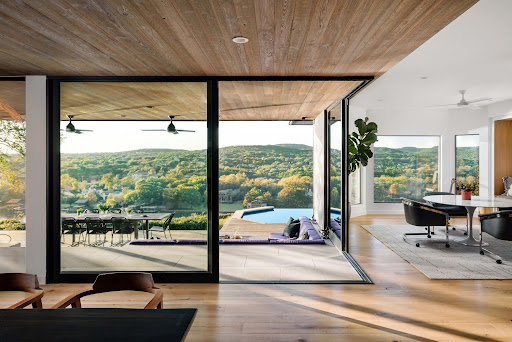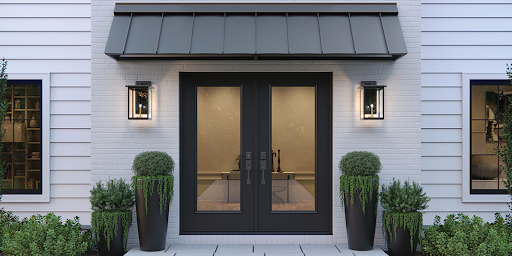Power Articles
Industry Elevating Content
Designing Ethical Spaces: A Look at Aesthetics and Window/Door Installation

PowerArticles
Oct. 9th, 2023
Windows and doors hold a special place in the dynamic home improvement landscape. They are not just functional components; they are gateways to the soul of a space. But have you ever considered the ethical dimensions of the windows and doors industry? This blog is a journey into that fascinating realm, tailor-made for businesses that sell these indispensable elements of every home. Imagine a beautiful, well-lit room adorned with thoughtfully designed windows and doors that enhance aesthetics and contribute to energy efficiency and sustainability. That’s the essence of ethical space design. It’s the harmonious marriage of aesthetics and responsible choices, and it’s a topic that’s gaining momentum in today’s conscientious world. Whether you’re an established window and door business or a budding entrepreneur, this blog post will help delve into the ethical aspects of space design.
The Role of Aesthetics in Space Design
Aesthetics in space design is more than skin deep. It’s about creating environments that evoke emotions, enhance well-being, and speak to the soul. In the world of windows and doors, aesthetics hold a pivotal role:
1. Creating Inviting Spaces
Picture a room filled with natural light streaming through beautifully crafted windows or a charming entryway framed by an exquisite door. Aesthetics make spaces inviting, drawing people in and making them feel comfortable.
2. Elevating Mood and Productivity
A well-designed space can positively influence one’s mood and productivity. For businesses, this translates into happier, more productive employees and satisfied clients in a welcoming office environment.
3. Reflecting Personal Style
Aesthetics are an expression of personal style. Homeowners seek windows and doors that reflect their unique tastes, modern minimalism, timeless elegance, or rustic charm. Businesses that offer a diverse range of design options cater to these varied preferences.
Ethical Considerations in Material Selection
The materials used in windows and doors matter immensely. They impact the look and feel of spaces, environmental sustainability, and ethical responsibility.
1. Sustainable Sourcing
Ethical material selection begins with sourcing. Businesses that sell windows and doors should prioritize suppliers who adhere to sustainable practices. FSC-certified wood, for instance, assures consumers that timber comes from responsibly managed forests.
2. Eco-friendly Alternatives
In the era of climate change, the move toward eco-friendly materials is paramount. Businesses can explore alternatives like recycled materials or low-impact composites that minimize environmental harm.
3. Energy Efficiency
Material selection plays a pivotal role in energy efficiency. Modern, thermally efficient windows and doors reduce heating and cooling costs, benefitting homeowners and the planet alike.

Installation Practices and Ethical Accountability
Installing windows and doors isn’t merely about fitting them into an opening; it’s about ensuring a space’s safety, energy efficiency, and longevity. Ethical installation practices are the cornerstone of responsible space design.
1. Prioritizing Safety
The ethical responsibility begins with safety. Faulty installations can lead to accidents, structural damage, and compromised security. Businesses must uphold the highest safety standards, from properly securing windows to ensuring doors are well-fitted with secure locks.

2. Energy Efficiency
Ethical accountability extends to energy efficiency. Poorly installed windows and doors can result in drafts, heat loss, and excessive energy consumption. Businesses should educate their installation teams about the importance of airtight seals and proper insulation. Installing energy-efficient windows and doors benefits the environment and saves homeowners money in the long run.
3. Quality Assurance
Ethical installation practices involve thorough quality assurance. Installers should be trained to identify and rectify product defects or issues before installation. This prevents callbacks and ensures customers receive top-notch, defect-free products.
4. Waste Management
Being environmentally responsible is part of the ethical installation. Businesses should have procedures in place for recycling or disposing of old windows and doors sustainably. Minimizing waste and reducing the environmental footprint is a testament to ethical commitment.
Balancing Aesthetics With Functionality
Creating beautiful spaces is essential, but ethical space design goes beyond aesthetics. It’s about striking the perfect balance between visual appeal and functionality.
The Aesthetic Impact
Windows and doors are not merely functional elements; they’re design statements. Their aesthetics can significantly influence the ambiance of a room. From sleek modern lines to classic and timeless styles, businesses should offer a range of designs that cater to diverse aesthetic preferences.

Functionality Matters
While aesthetics matter, functionality should never be compromised. Windows must allow natural light and ventilation, and doors should provide easy access and security. It’s about understanding how these elements enhance the occupants’ daily lives and meet their practical needs.
Customization Options
The key to ethical space design is customization. Businesses should empower customers to choose designs that align with their unique tastes while ensuring that the selected windows and doors maintain functionality. Offer customizable options in materials, colors, and styles to strike that perfect balance.
Sustainability in Design
Ethical space design is incomplete without sustainability. Advocate for sustainable materials and construction practices. Eco-friendly windows and doors look good and contribute to a healthier planet. Consider materials like recycled wood, low VOC finishes, or energy-efficient glass to blend aesthetics with environmental ethics.
Educating Customers
Empower customers to make ethical design choices by providing information. Explain how their design choices can impact energy efficiency, comfort, and the environment. Customers are more likely to make responsible choices When they understand the ethical implications of their selections.
Local Regulations and Ethical Compliance
Businesses that sell windows and doors must be conscious of their ethical obligations regarding local regulations. These standards are not merely bureaucratic hoops to jump through; they are the backbone of safety and ethical accountability.
Embracing ethical compliance means respecting the laws and codes set by local authorities. It ensures that the materials used, installation methods employed, and design choices align with these regulations. Businesses must keep a vigilant eye on evolving standards, staying ahead of the curve to guarantee ethical excellence.
Customer Education on Ethical Choices
One of the most powerful tools in the ethical space design toolbox is education. Businesses are responsible for educating their customers on the ethical considerations surrounding windows and doors.
Informing customers about sustainable materials, energy-efficient designs, and compliance with local regulations empowers them to make ethical choices. It transforms customers into partners in ethical space design, as they become conscious decision-makers who value aesthetics and responsibility.
Providing resources, guides, and transparent information can guide customers toward choices that benefit their living spaces and the environment. Informed customers make choices that lead to more sustainable, efficient, and aesthetically pleasing outcomes, aligning their values with ethical design principles.
Conclusion
In wrapping up this insightful journey through ethical space design, one thing becomes abundantly clear: in windows and doors, aesthetics and installation practices aren’t just about appearances and functionality but ethics and responsibility. For businesses that sell windows and doors, the path forward is paved with conscious choices. It’s about selecting materials that respect our planet, embracing installation practices that ensure safety and energy efficiency, and educating customers to make informed, ethical decisions. Remember that we are not just designing spaces but environments where people live, work, and thrive. It’s a profound responsibility, and it’s one that, when done right, doesn’t just create beautiful spaces but also builds a better world for all.
Published By
PowerArticles
Oct. 9th, 2023